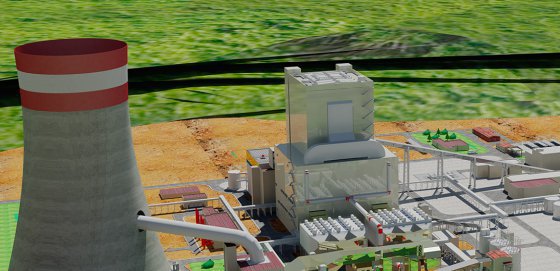The state-controlled main power utility PPC, faced by the prospect of needing to sell production units as a result of bailout-related demands, plans to prepare two to three alternative sales lists so as to be best prepared with its own proposals once negotiations between government officials and the country’s lenders progress to the next step to determine the units to be sold.
Though a finalized agreement has yet to be reached by the negotiating sides, PPC’s proposals will be based on the assumption that it will need to sell units representing around 40 percent of its lignite-fired production capacity. The year to be used as a base for this calculation remains unspecified.
Basing the unit sales calculation on PPC’s installed capacity of 2015 would produce a different result than 2017 as the denominator, as a number of units have been withdrawn. Using 2020 as the base year would also produce a different result, as more ageing units are expected to have stopped generating electricity by then.
Also unclear at this stage is whether the 40 percent production unit sale figure highlighted by the lenders in the bailout talks, striving to conclude the second review, will be restricted to lignite-fired power stations or also include coal mines.
These murky points will need to be clarified when the lenders return to Athens to continue negotiations. It remains unknown when the talks will resume.
As a result, PPC will need to make assumptions, or play a bit of a guessing game, when preparing its sale list proposals.
PPC may consider including Ptolemaida 5 in its sale package proposals. Not expected to be launched until 2020, this prospective unit has, until now, been viewed as a key part of the utility’s future plans.
PPC has so far invested roughly 500 million euros in this project, according to energypress sources. The same sources contended that PPC could be willing to sell the unit if this amount, plus a premium factoring in the unit’s value and operating potential, is offered by investors. Such a move would rid PPC of a demanding project and provide the utility with a considerable cash injection, the sources supported.
Speaking at an Economist conference in Athens last November, PPC’s chief executive Manolis Panagiotakis admitted that an investment by the utility in natural gas-fueled units would have been preferable. An equal, or even greater, generating capacity would have been achieved with less capital, he told the industry event, adding that such a gas-fueled unit would have required less time to develop.





